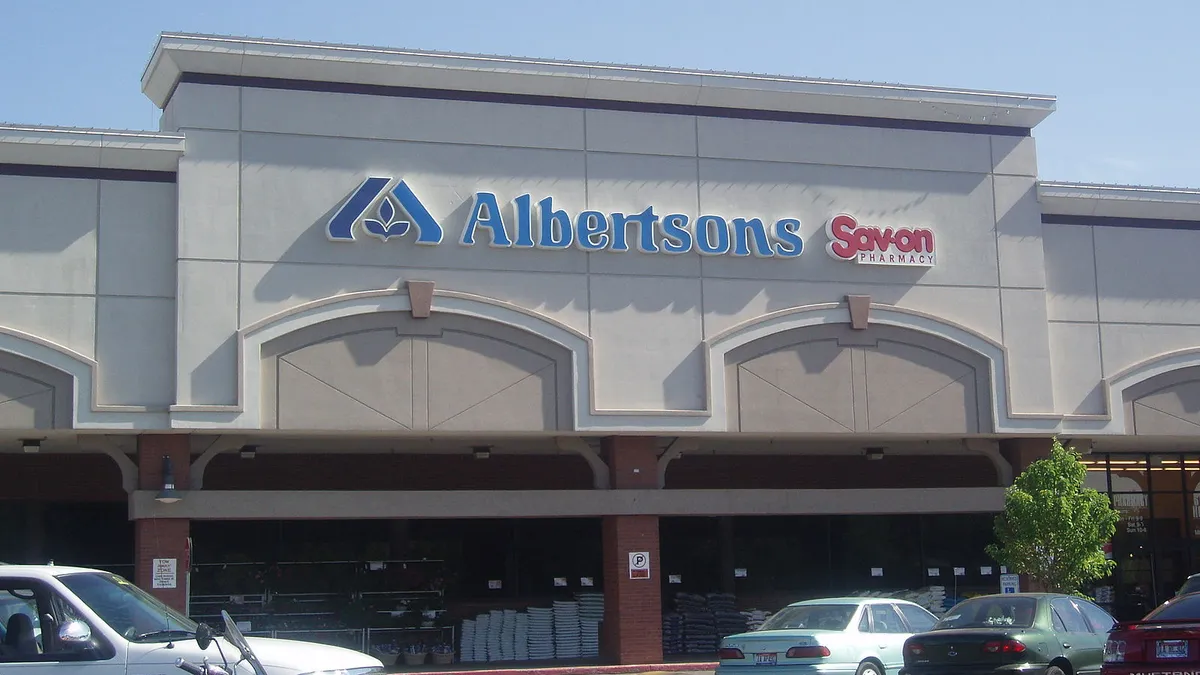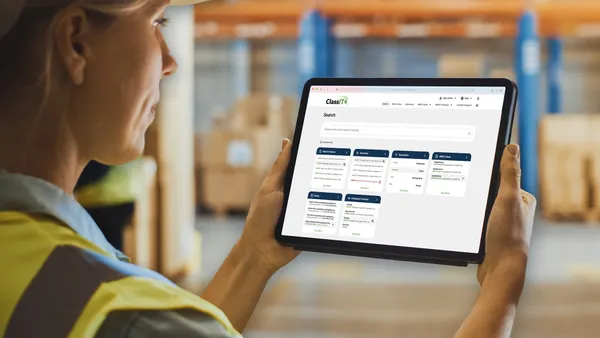Dive Brief:
- Albertsons has joined the IBM Food Trust blockchain initiative in an effort to test the technology's ability to track the provenance of romaine lettuce, according to a press release.
- The grocer plans to "pilot the solution to help overcome the obstacles that have existed when a traceback is initiated for a product like romaine and is evaluating ways to use the technology to highlight the provenance of its extensive Own Brands portfolio," according to the release. The pilot will begin in one distribution center.
- In February, IBM made the IBM Food Trust solution "generally available," and so far grocers including Carrefour, Kroger and Walmart, as well as food companies including Dole, Driscoll’s, Golden State Foods, McCormick, McLane, Tyson Foods and Unilever have all experimented with the technology to trace various food items through their supply chains.
Dive Insight:
Food supply chains are still testing blockchain to see if it is the right technology to solve the growing problem of food traceability. Not only are consumers more interested in understanding the provenance of their food, but more frequent food-borne illness outbreaks make a lack of traceability a serious threat to food businesses — especially those trading in particularly relevant products such as romaine lettuce. And Albertsons is not the only grocer to recognize the problem.
"Multiple high-profile consumer advisories from the Centers for Disease Control and Prevention and the Food and Drug Administration demonstrate the need to find more efficient ways of tracing products and identifying likely sources of contamination in a timely manner," Jerry Noland, the vice president of food safety and quality assurance for Albertsons Companies, said in a statement.
Walmart launched a similar initiative last year, also with IBM Food Trust, wherein suppliers will be required to participate. The company's original letter to suppliers announcing the program stated that they seek to achieve "end-to-end traceability back to farm by September 30, 2019."
The more the merrier, said IBM, noting in its release that blockchain networks are stronger when more actors make more transactions. "That is why the solution can enable an ecosystem of companies from across the food industry to onboard and share data," the release reads.
Indeed, more participation in IBM's program could offer proof that tracing food using blockchain technology will improve the safety of the food supply.
"What makes blockchain-based systems different than existing supply chain solutions is that they enable a digital trail leading back to each participant's door, which means greater transparency and, in turn, accountability within the network," Nigel Gopie, marketing leader for IBM Blockchain, told Supply Chain Dive in February.
But more pilots and participants should also prove whether or not the wildcard in the supply chain — the necessity of human intervention — will introduce fallibility into a theoretically infallible ledger.
Gopie explained that in a large network, mistakes in data entry can be corrected. "If there is an error in data entry, it can be corrected with consensus from the network," Gopie said. The impact of human error on such a system would be determined by the universal standards for data entry, format and governance of the system. IBM's system has not yet been tested at scale on these grounds, so more participants of Albertsons' size can only improve the experiment.
"Today, we are focused on ensuring that the solution scales and is accessible to participants across the food ecosystem, such as Albertsons Companies. By bringing more members into the network and enabling them to share greater cross-sections of data in a secured environment, we believe our vision of a transformed food ecosystem using blockchain is closer than ever," Raj Rao, general manager of IBM Food Trust, said in a statement.














